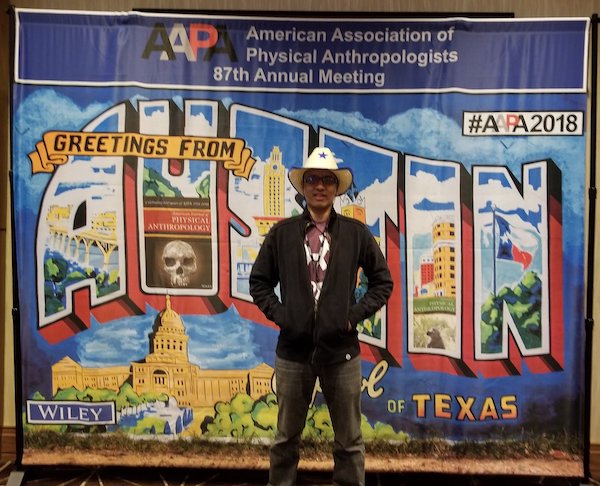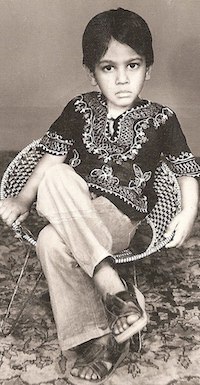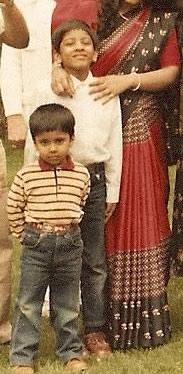
I have heard it stated by some scholars that generations don’t exist, but cohorts do. That is, our bracketing of ranges of people into particular generations is artificial and bins what is truly a more continuous variable into a few categories. The same criticism applies to the Myers-Briggs typology in personality (the main reason psychologists prefer the “Big Five”).
But the flip side of this issue is that to talk reasonably about some phenomenon you have to bin and categorize continuous variables. Human races may not have hard and fast boundaries, but human genetic variation is difficult to talk about unless you use some categorical shorthand.
Some of the same applies to the term immigrant and native-born. The reason I’m putting up this post is that there was a discussion online about whether there can be something called a “second generation immigrant.” That is, someone whose parents were born abroad, but they themselves were born in the country of their citizenship. Myself, I think the term immigrant should only apply to those who were born abroad. Native-born and immigrant are disjoint distributions.
But, there are more than a few categories here within the dichotomy. When you arrive in your life, and where you arrive, matters a great deal.
Someone who arrives in the United States in mature adulthood is most definitely an immigrant. Perhaps the prototype of the category. Even in these cases, there are differences. If you arrive at the age of 60 to help your son or daughter raise your grandchild, your experience as an immigrant will be very different from that of your 30-year-old son or daughter, even though you both arrive as adults.
But, I think the bigger qualitative difference here is the threshold of adulthood.
If you arrive in the United States in your formative years, you may be an immigrant by the formal definition, but you are qualitatively different from those who arrive as adults. If, for example, you arrive at the age of 14 you have a clear memory and experience of another country, but some of your most formative “coming of age” experiences are still ahead of you. America will become an essential part of who you are like it or not. Adolescence is a turbulent time where you figure out who you are. You are in no way crystallized. But you will be.
Adolescent immigrants are different from those who arrive before puberty. These individuals are even less formed in their outlooks. Whereas many adolescent immigrants exhibit lexical features and accents which mark them as different and liminal to both the native and immigrant, those who arrive before puberty almost always exhibit near total linguistic assimilation.
Even among those who arrive before the age of 13, there is variation. Someone who arrives at the 8 may have done schooling abroad in a different language. Someone who arrives at the age of 5 may never know any other schooling, and so the substantive socialization is entirely native, despite their formal immigrant status.

I fall into the very last category of immigrant. I arrived in the United States of America three weeks after I had turned 5 years of age. I entered elementary school in the fall for the first time. Though my fluency in English was limited when I began, by the end of kindergarten I was totally at home in the language.* Though I had begun some rudimentary Bengali letters with my grandmother before I arrived in the United States, I quickly forgot that and am entirely illiterate in Bengali. My spoken Bengali is serviceable but rudimentary.
Obviously, the contrast with an immigrant who arrives as an adult is striking in my case. In fact, operationally I have much more in common with the native-born children of immigrants. If I had arrived at a younger age, as my younger brother did, the gap would be nonexistent with native-born children of immigrants. As it is, I do have some memories of Bangladesh from when I was 3 and 4. To be entirely honest I have felt that the immigration event at such a young age, but an age when I could still remember experiences in the country of my birth with a high degree of vividness, is almost like being reborn entirely.

As a child of 4, I had a nanny, servants, and an enormous extended family who would visit often. My life was going on a particular trajectory. A Bengali, Bangladesh trajectory.
Then, just as I turned 5 I was translocated to an extremely cold climate, saw snow for the first time upon landing, and recall the peculiar taste of mint Tic Tac candies in the car from the airport to our new home. I don’t think there was any deep trauma, but I quickly became someone new, on a different path. My future as an American at been set for me.
My memories of Bangladesh were almost the memories of a past life, of a different person.
In less than a year I went from being Rajib to Razib. I went from seeing at least one of three of my grandparents at least every day to never (one of my grandparents had died while I was in utero). I saw two of my grandparents one more time when we visited in 1990. The last grandparent I saw twice, as she lived into the 2000s.
Throughout my childhood, we had no relatives in the United States. My life in Bangladesh had been filled with relatives to an extent that most (though not all) Americans would have found cloying. My life in the United States was lacking in relatives to such an extent that most Americans would have pitied me.
Looking back now it is clear that the life I took for granted, the experiences that are just part of my past, are ones of cultural, social, and familial rupture. Though we did not live in a joint-family situation in any formal sense, my parents’ siblings came and went in our house, and sometimes I would go and stay with relatives. When we moved to the United States we transitioned immediately into the atomized life of a nuclear family. Two parents. Two children.
There were very few South Asians in the United States at that time, let alone Bangladeshis. At some point, my father obtained a mimeographed pamphlet with the title “Bangladeshis in the United States,” which listed most of those living in the USA on a permanent basis with their locations and phone numbers. My parents had some white friends associated with the university, but as a matter of necessity, their social circle included Indian Bengalis, Pakistanis, and other assorted South Asians.
On a fundamental and deep level nominalism leads to nihilism. I am the immigrant child of immigrants. But my parents were in their 30s when they arrived in the United States. I was 5. We are all immigrants, but the category masks enormous variation. We can’t forge this.
I said at the beginning of the post that when and where matters. The former is not just individual age, but the particular date. I came of age in the 1980s. I have native-born younger siblings who came of age in the late 1990s and early 2000s. In many ways, they are more Bangladeshi, more “brown”, because they came of age in a time when being brown was a more distinct and coherent identity in the United States.
Similarly, if you grow up in Edison or Cupertino as a native-born American South Asian, the where factor looms large. Those of us who grew up surrounded by white Americans have a very different outlook and intuitions about the world from those who grew up in more multicultural circumstances.

Due to my particular experience, I think on a deep level I can intuit why some immigrants approach the world the way they do. My parameters are specific, but I know that those parameters exist.
Depending on the source, Ilhan Omar arrived in the United States when she was 10 or 12. Her accent is nearly perfect, but not entirely so. There is still the faint touch of foreignness about her when she speaks. I believe this extends to her weakness with American English idioms.
Not only was Ilhan a bit older when she arrived, but she embedded herself quickly into a large and cohesive refugee community of co-ethnics. Being a refugee is by its nature dislocating, but in some fundamental ways, she experienced far less dislocation than my own parents, who arrived in an American very foreign to them, and navigated it as very much a pair. There were no intermediating institutions for them.
Ultimately we will need to use coarse and broad categories like “immigrant” to get anything out of language. But it is important to always remember that these categories mask and smooth over underlying variation and continuities.
* To be fair, I exhibited a few lacunae that persisted. Bengali has no gendered pronouns so I persisted in confusing “he” and “she” in elementary school for several years.
Given this, what are your thought on Dream Act/DACA? I don’t mean the illegality of Obama’s edict, but when the age cut-off is best set for someone who’s “American in all but paperwork”, as the advocates say?
assume you don’t live in an enclave (e.g., hasidic jews in nyc who don’t teach their kids english), it seems anyone here before puberty is probably pretty close.
the range is greater once you get about 12. some ppl want to assimilate as teens. others don’t.
I think you are right on about this. I came at the age of nine from the USSR (Eric is my American name). For some reason, I have been always interested in those in my community who retain their accents vs those that don’t. Puberty seems to be a cut off for accents.
I do want to expand the “where” factor you mentioned though to local “zeitgeist”. We were both immigrants in the 1980s when Reagan was president and being pro-American was part of the cultural assimilation recipe.
My perception of the bargain was as follows: America was the city on the hill and it was a privilege to here. However, if I learned the language and the traditions and supported my new country, I can ascend and become a co-equal with American natives. My guess is that your experience was similar.
I don’t think that Omar’s experience was the same. She arrived at different time with different assimilation expectation. I don’t think that appreciating America is part of an immigrant’s path today or in Omar’s time.
My guess is that your experience was similar.
yes.
I don’t think that appreciating America is part of an immigrant’s path today or in Omar’s time.
yes.
Razib — What is the origin of the shift from “Rajib” to your current name?